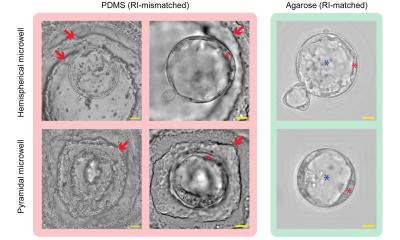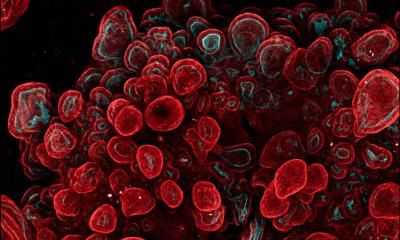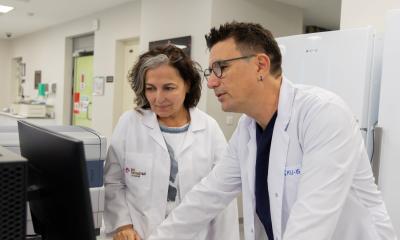Plasma Medicine
Center for plasma medicine opened in Korea
With a ceremonial opening in presence of the German ambassador in Korea on February 6th, 2017 the cross-national „Applied Plasma Medicine Center“ (APMC) of the Leibniz-Institute for Plasma Science and Technology e.V. (INP Greifswald) and the Plasma Bioscience Research Center (PBRC) in Seoul, Korea was founded.

In presence of exalted international people from economics, science and politics an excellence research center for applied plasma medicine in Korea, the “Applied Plasma Medicine Center” (APMC), was opened on February 6th, 2017. The Leibniz Institute for Plasma Science and Technology e.V. (INP Greifswald) is the first Leibniz Institute being part of a Korean excellence initiative for application-oriented science. In cooperation with the Plasma Bioscience Research Center (PBRC) of Kwangwoon University in Seoul a milestone of international collaboration was created in this area of research. Subsequently the welcome speech of the head of Kwangwoon University, Prof. Jang H. Chun, and several guest speakers, among others the German ambassador in Korea, Stephan Auer, a two-day scientific colloquium with technical lectures in the field of plasma medicine took place. The joint research center will bring “…a benefit for the international plasma community and will yield a remarkable amount for continuation of the plasma medicine on international level” as Prof. Klaus-Dieter Weltmann, Chairman of the Board and Scientific Director of the INP Greifswald, explained on occasion of the ceremonial opening.
Continuation of plasma medicine on international level
With the opening of the AMPC and the collaboration with the strong partner in Korea, the INP is continuing to expand its pioneering role as an institute for interdisciplinary research and development in the field of plasma medicine. The focus will be on basic research, development and diagnostic of new non-thermal atmospheric pressure plasma devices and processes as well as their applied clinical research and technology transfer in the Asian region. One major goal is to set up international standards for the development of medical devices especially for the field of Plasma Medicine. "Plasma medicine will arrive at the hospital in Korea as well as already done in Germany,” as Prof. Klaus-Dieter Weltmann, explained in his opening speech. In addition to that, multicentric clinical trials are in focus of the joint research. This will be supported by an intensive exchange of scientific experts in joint laboratories in Germany and Korea. The APMC “… enhances the relationships and it extents and supports the collaboration for a joint and international benefit in the field of plasma medicine” as Prof. Klaus-Dieter Weltmann adds.
Enhancement of the clinical oriented research
Special chances are, according to Dr. Kai Masur, head of the research group plasma-wound healing (ZIK plasmatis) at INP Greifswald, “…to promote the applied clinical research in the field of plasma medicine”. Multicentric clinical studies are planned with the aim to use the, in Europe permitted, kINPen® MED in the Korean clinics. Moreover, comparative studies in Europe and Asia allow further parameters such as different skin types or eating habits to be included in the study. In course of the excellence research project a further product of the Korean project partners should be proved for certification on the Korean market. Subsequent to that, a comparison of the results of the clinical trials in Europe and Asia could become possible. Thus, the intercontinental transfer of technology and the standardization of these new types of therapeutic devices and procedures at an international level are some of the key objectives of this international collaboration. For this purpose, further German and Korean cooperation partners are involved in the research project. Among others, also the neoplas tools GmbH, a spin-off of the INP Greifswald. Besides the technological support, the company will contribute with their knowhow in the field of plasma sources development and the certification procedure.
Global Research Development Center
With the excellence program “Global Research Development Center” (GRDC), Korean research centers in cooperation with leading international partners in the field of science- and technology-transfer, were supported. Each year, three projects were selected for funding after passing a two-step international referee process. The National Research Foundation (NRF) of the Korean government supports by this initiative the international exchange of research and development and promotes the applied basic research and the establishment of a global research and development center in this field.
Source: Leibniz Institute for Plasma Science and Technology (INP)
17.02.2017





